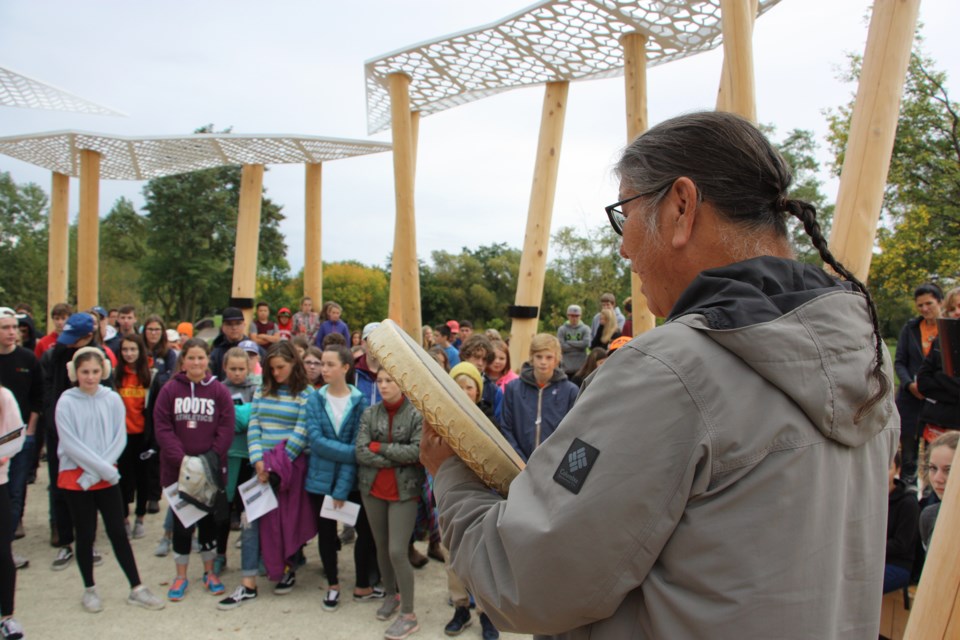An orange shirt taken away from a young girl in the 1970s has become a symbol of remembrance of victims and survivors of residential schools and part of a national movement toward reconciliation.
Students in Collingwood marked Orange Shirt Day with a walking field trip to the Awen Gathering Circle and a teaching from John Rice of the Wasauksing Bear Clan.
The students - from Collingwood Collegiate Institute and Mountain View Elementary school – met at the Gathering Circle on Oct. 1 during first period.
Orange Shirt Day is based on the story of Phyllis Webstad, who attended what she calls a Mission school for the 1973/74 school year. She was six years old. She lived with her grandmother on the Dog Creek reserve. Her grandmother took her to a store - despite not having much money – and bought her a new shirt for her first day of school. It was orange and laced up in front. According to Webstad, who tells her story here, she was excited for school and about her new shirt.
When she arrived at the mission, they stripped her of her clothes and gave her a standard uniform. She didn’t see the shirt again.
At 13, Webstad had a child, Jeremy. Webstad’s aunt helped her raise him. Webstad struggled with addiction and, at 27, went to a treatment centre. She went on to earn an accounting degree and a diploma in Business Administration. She tells her story today to help others understand.
At the Awen Gathering Circle today, John Rice and elder in the Bear Clan of Wasauksing (near Parry Sound), told Webstad’s story and gave a teaching on the value of a child.
Rice shared a memorial song to open the event and followed with part of the Miikaans Teaching about the Spirit’s journey through the physical realm. The Anishanaabe teaching says all babies before they are born spend a day talking with the creator where they learn their spirit name and the reason for their birth.
“When I was young, I was a bully,” said Rice, recounting a story about beating up a kid at school.
His grandmother found out about it and told him something he hasn’t forgotten.
“She told me, ‘you might have broken his spirit,’” said Rice, adding that meant the boy he hurt might never fulfill his purpose and might never make the change in the world he was meant to.
He explained his culture didn’t have specific children’s teachings. Instead, the children were given adult teachings out of respect for their spirits. He also explained to the group his culture had no classification such as teenager. You went from childhood to adulthood. Those who had recently grown into adulthood were referred to as oshkiniijig, which means "new people."
“New people widen our vision,” said Rice.
He told the students it was important for them to connect with their spirit to find their gifts and purpose.
“Ask yourself, ‘What is my gift? How am I a gift?’” said Rice. “The gifts you have are suitable for you … Every child matters, not just indigenous children.”
He said children should have the courage to speak out, and adults “need to be courageous enough to listen.”
Rice ended his teaching with a love song.
For more on Orange Shirt Day in Canada, click here.



